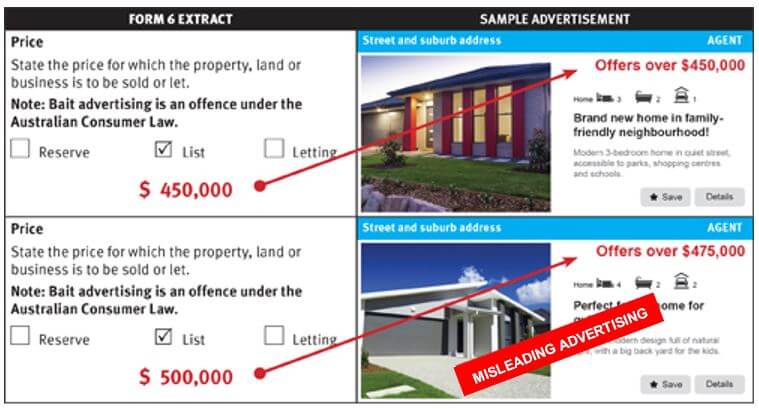Property advertising
Licensed property agents mustn't engage in misleading or deceptive conduct when advertising property for sale.
Some private sale treaties are marketed to buyers with an 'offers-over' price—a minimum asking price, which you expect offers above.
If you use an offers-over price, it should be the minimum amount the vendor is willing to accept to sell the property.
It is considered false advertising if you set a property price knowing the vendor won't sell the property for that price.
Giving buyers a false impression about the price a seller will accept is known as 'bait advertising'.
Making a false or misleading representation about the sale of land and property is an offence under the Australian Consumer Law (ACL). The maximum penalties are:
- for a corporation in breach of the ACL, whichever is greater of
- $50 million
- 3 times the value of the benefit received
- 30% of annual turnover during the breach period (when the benefit can't be calculated)
- for an individual in a breach of the ACL, up to $2.5 million per breach.
The vendor's minimum selling price is the price they've noted on Form 6—Property Occupations Act 2014 appointment.
It is considered a false or misleading representation if the property agent knows the seller provided incorrect details on the form. It is the agent's responsibility to make sure the seller is aware of the law.
The below graphic shows an example of 2 ads—one is accurate, the other is considered a false or misleading representation. The graphic displays the Form 6 minimum price to be accepted compared to the actual property agent ads.



